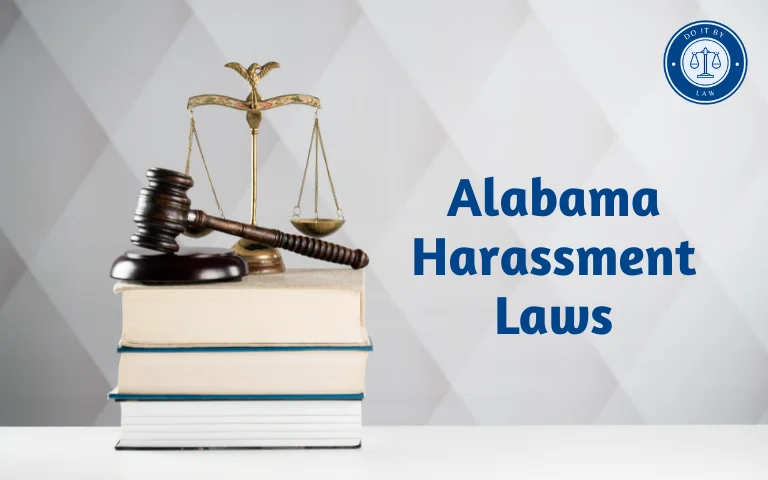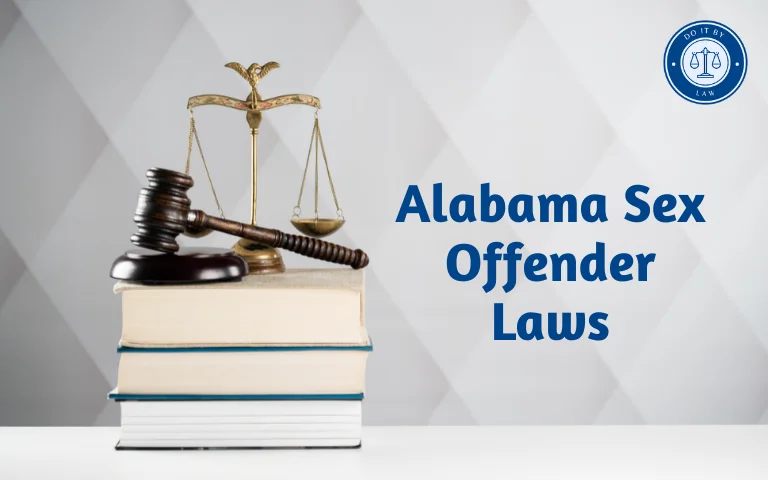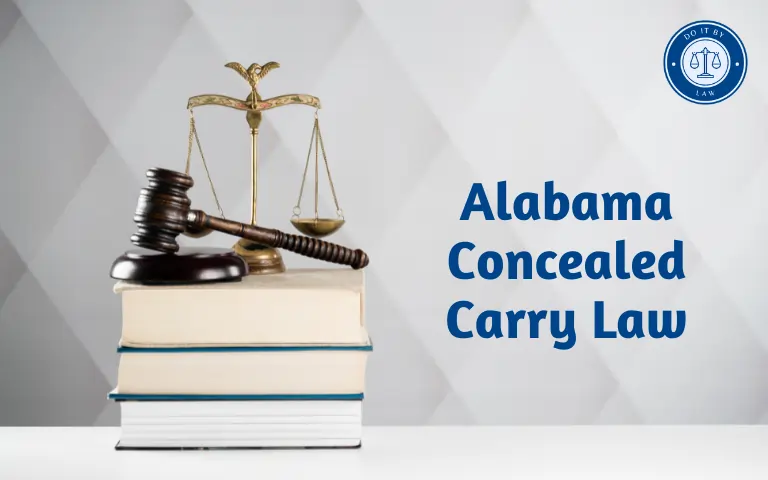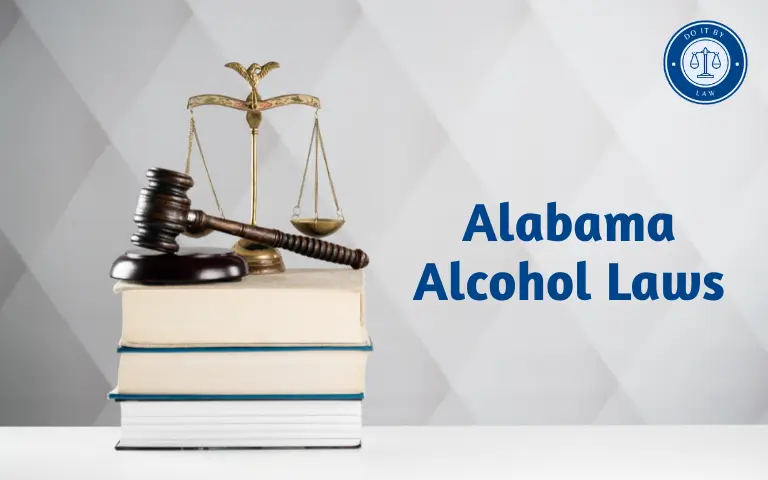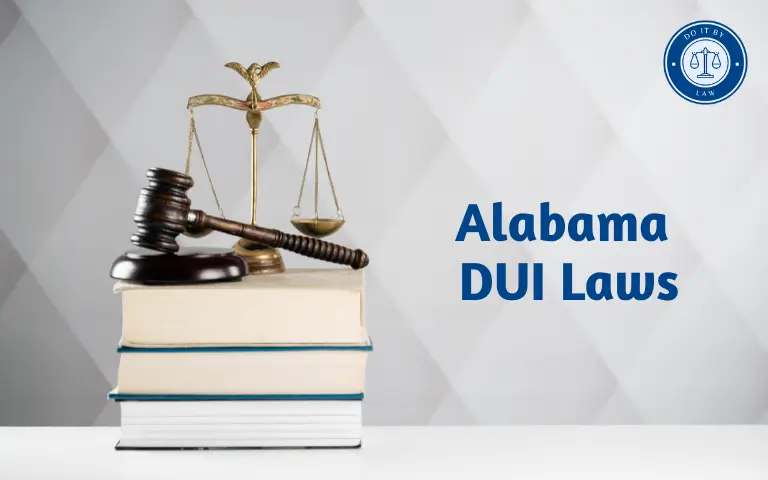Alabama Harassment Laws: Your Guide to Charges, Penalties, and Legal Protection
If you’re searching for information on Alabama harassment laws, chances are you’re either facing harassment or worried about being accused of it.
Many people feel overwhelmed by the legal jargon surrounding harassment Alabama code and don’t know what steps to take. Whether you need to file a harassment complaint, defend against allegations, or simply understand your rights, this guide simplifies everything about harassment in Alabama.
👉 Know more about how Alabama law harassment rules impact your situation and how you can protect yourself legally!
What Is Considered Harassment in Alabama?
Under the Alabama harassment laws, harassment is legally defined in Alabama Code § 13A-11-8. In simple terms, harassment involves intentional acts directed at a specific person that seriously annoy, alarm, or harass them — and serve no legitimate purpose.
This can include:
- Striking, shoving, or touching someone in an offensive manner
- Threatening behavior
- Repeated communications (calls, texts, emails) intended to harass
Key point: Even without physical injury, harassing behavior can lead to criminal charges under harassment Alabama code.
Difference Between Harassment and Stalking
While harassment and stalking both involve unwanted behavior, they are treated differently under Alabama law:
| Category | Harassment | Stalking |
|---|---|---|
| Intent | Annoy, alarm, or harass | Instill fear of harm or cause emotional distress |
| Behavior | Verbal threats, unwanted physical contact, or repeated annoying communication | Following, surveillance, threatening a person repeatedly |
| Seriousness | Typically charged as a misdemeanor | Often charged as a felony (especially stalking 1st degree) |
| Law Reference | Alabama Code § 13A-11-8 | Alabama Code § 13A-6-90 |
✅ Tip: If the behavior escalates to threatening someone’s safety or involves tracking them, it could become a stalking charge under Alabama stalking laws.
Common Real-Life Examples of Harassment in Alabama
Here are typical situations that can lead to harassment charges:
- Sending repeated threatening text messages after a breakup
- Publicly confronting someone with aggressive language multiple times
- Unwanted, persistent phone calls that disrupt someone’s daily life
- Grabbing or pushing someone during an argument without causing injury
- Yelling obscenities at a coworker repeatedly with intent to cause emotional harm
👉 If you feel you’re being harassed, or wrongly accused, knowing the specifics of harassment in Alabama can protect your rights. Know more about filing a harassment complaint today!
Harassment Charges in Alabama: What You Should Know
In Alabama, harassment is usually classified as a Class C misdemeanor, which might sound minor — but the consequences can be serious. A conviction may result in:
- Up to 3 months in jail
- Fines up to $500
- A permanent criminal record
- Loss of employment or housing opportunities
If harassment is linked to a domestic situation, it can lead to enhanced charges or protective orders — especially under DV 3 harassment Alabama statutes.
DV 3 Harassment Alabama: When It Becomes Domestic Violence
When harassment occurs between family members, romantic partners, or people living together, it may be classified as Domestic Violence in the Third Degree (DV 3).
| Aspect | Regular Harassment (Alabama) | DV 3 Harassment (Domestic Violence 3rd Degree) |
|---|---|---|
| Definition | Unwanted conduct (verbal, physical, or written) that annoys, alarms, or causes emotional distress | Harassment between individuals in a domestic relationship (spouses, ex-spouses, dating partners, family members) |
| Charge Level | Class C Misdemeanor | Class A Misdemeanor |
| Jail Time | Up to 3 months | Up to 1 year |
| Fines | Up to $500 | Up to $6,000 |
| Protective Orders | Optional, based on severity | Often mandatory; can include restraining orders |
| Other Penalties | Criminal record, possible probation | Criminal record, mandatory counseling, loss of firearm rights (in some cases) |
| Long-Term Impact | Misdemeanor record; moderate employment impact | Higher level misdemeanor record; serious consequences for custody, immigration, and job prospects |
DV 3 harassment includes:
- Threats or verbal abuse during an argument at home
- Repeated unwanted calls or texts to a spouse or ex-partner
- Physical gestures or intimidation meant to cause emotional harm
Important: A DV 3 charge can result in mandatory counseling, restraining orders, and can impact child custody or firearm rights.
Communication Harassment vs. Physical Harassment
| Type of Harassment | Definition | Legal Code | Examples |
|---|---|---|---|
| Communication Harassment | Repeated contact via phone, email, or social media with intent to annoy or alarm | §13A-11-8(b)(1) | Harassing texts, voicemails, calls |
| Physical Harassment | Intentional unwanted touching, pushing, or threatening behavior | §13A-11-8(a) | Shoving, intimidating gestures, grabbing |
✅ Quick Note: Both types are punishable under the Alabama harassment law, but DV classification or repeated offenses can escalate penalties.
Penalties for Harassment and Harassing Communications
In Alabama, harassing communications — like repeated unwanted calls, texts, emails, or social media messages — are criminal offenses under §13A-11-8(b) of the Alabama Code.
If convicted, you may face:
- A Class C misdemeanor charge
- Up to 3 months in jail
- Fines up to $500
- Possible restraining orders blocking future contact
If the harassment is part of a domestic violence situation (DV 3), penalties can become more severe, including mandatory counseling and probation.
Misdemeanor vs. Felony Charges
- Misdemeanor Harassment:
Most harassment and harassing communication charges are Class C misdemeanors. First-time offenders typically face fines and potential short-term jail time. - Felony Harassment:
Harassment rarely rises to a felony unless it involves aggravating factors like:- Repeated violations of a protective order
- Harassment that escalates into physical assault or stalking
- Threats of serious bodily harm
In these cases, additional felony charges like stalking or domestic violence in higher degrees may apply.
What Is the Penalty for Harassment in Alabama?
| Offense | Charge | Penalties |
|---|---|---|
| Harassment (First offense) | Class C misdemeanor | Up to 3 months jail, $500 fine, possible protective orders |
| Harassment (With DV 3 classification) | Class A misdemeanor | Up to 1 year jail, $6,000 fine, mandatory counseling |
| Repeated/Aggravated Harassment | Possible felony charges | Longer prison sentences, higher fines, probation |
✅ Important: Even a misdemeanor harassment conviction stays on your criminal record, affecting jobs, housing, and professional licenses.
📎 Internal Link: Facing harassment charges? Learn how an Alabama criminal defense lawyer can help protect your future.
How to File Harassment Charges in Alabama
Facing harassment can be overwhelming, but Alabama law offers victims a clear path to seek justice. Here’s a simple, actionable guide:
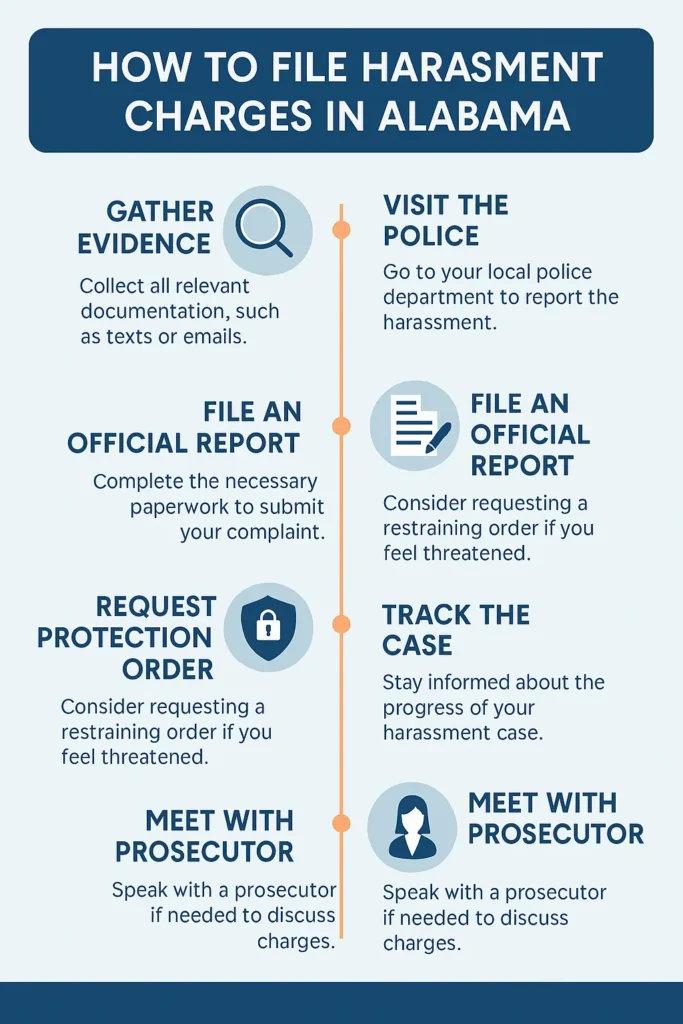
Step-by-Step Process for Victims
- Gather Evidence
Collect all documentation such as text messages, emails, call logs, social media messages, photos, or videos showing harassment. - Document the Incidents
Keep a detailed record of each harassment event: date, time, location, description, and any witnesses. - Visit the Local Police Department
Go to the police station where the harassment occurred. Bring your evidence and a photo ID. - File an Official Report
Complete an incident report. Be honest, detailed, and concise about what happened. - Speak with a Prosecutor (If Needed)
The police may refer your case to a city or county prosecutor who will decide whether to file criminal charges. - Request a Protection Order (Optional but Recommended)
If you fear for your safety, you can request a restraining order or protection from abuse order immediately after filing. - Stay Informed
Track the case by staying in touch with law enforcement or the court handling your complaint.
Necessary Documentation and Evidence
- Screenshots of harassing communications
- Call records or voicemails
- Witness statements
- Any police reports of previous incidents
- Medical records if physical harm occurred
- Photos or videos of damages (if applicable)
Timelines to File
- Prompt action is critical:
Filing sooner strengthens your case and helps establish an ongoing pattern of harassment. - Statute of Limitations:
Generally, misdemeanor harassment charges must be filed within 12 months of the incident in Alabama.
📎“Need legal support? Speak with an Alabama harassment attorney today to protect your rights!”
Defending Against Harassment Accusations
Facing a harassment charge in Alabama can have serious consequences — from criminal records to personal reputation damage. If you’ve been accused, it’s crucial to understand your rights and potential defenses.
| Defense Strategy | Description |
|---|---|
| Lack of Intent | Actions were unintentional or misinterpreted. |
| Freedom of Speech | Communication was legally protected under First Amendment rights. |
| False Accusations | Evidence shows the claim is fabricated or exaggerated. |
| Insufficient Evidence | Prosecution cannot prove harassment beyond a reasonable doubt. |
Legal Defenses Available
Several defenses may apply depending on the facts of your case:
- Lack of Intent: You must have intentionally harassed someone. A misunderstanding or unintended communication could be a defense.
- Freedom of Speech: Certain expressions, although upsetting, may be protected under the First Amendment.
- False Accusations: Evidence that the allegations are fabricated or exaggerated can lead to a dismissal.
- Insufficient Evidence: If the prosecution cannot prove the claim beyond a reasonable doubt, charges may be dropped.
When to Hire an Attorney
Hiring a qualified Alabama harassment defense lawyer is critical when:
- You are formally charged with harassment or harassing communications.
- You face possible domestic violence (DV 3 harassment) implications.
- You risk jail time, fines, or a long-term criminal record.
Early legal advice can help you avoid missteps and build a strong defense.
Impact on Criminal Records
Even misdemeanor harassment charges can:
- Appear on background checks
- Affect employment, housing, and professional licensing
- Create permanent public records if not expunged
Don’t leave your future to chance — seek immediate legal counsel if you’re facing harassment accusations in Alabama.
👉 Need help fast? Contact an Alabama harassment defense attorney today.
Recent Updates to Alabama Harassment and Stalking Laws (2025)
Alabama harassment laws have evolved significantly in 2025 to address modern challenges, particularly involving technology and online behavior.

Changes in Definitions and Penalties
- Expanded Definitions: The Alabama Code now includes broader language covering electronic communications, social media messages, and persistent online contact as forms of harassment.
- Harsher Penalties: Offenses involving digital harassment or stalking can lead to enhanced misdemeanor charges and, in severe cases, felony classifications. Repeat offenders face stricter sentencing, including longer jail time and higher fines.
- Protective Orders: Courts have streamlined the process for victims to obtain restraining orders based on online threats or repeated cyber intrusions.
Technology-Related Harassment: Cyberbullying and Digital Stalking
- Cyberbullying Protections: Alabama law now explicitly criminalizes repeated online threats, harassment via text messages, emails, and social media platforms.
- Digital Stalking: Tracking someone’s location via apps, unauthorized surveillance, or persistent digital monitoring now falls under the stalking statutes with enhanced penalties.
- Minors and Schools: Special provisions have been added to protect minors from cyberbullying, especially on school networks or during school-related activities.
📎 Need legal help navigating Alabama’s updated harassment laws? [Contact a local harassment defense attorney today!]
Controversies and Challenges Regarding Alabama Harassment Laws
While Alabama harassment laws aim to protect individuals from unwanted behavior and communications, they are not without controversy. Over time, several legal challenges and public debates have surfaced:
| Controversy | Summary |
|---|---|
| Vague Definitions and Overreach | Terms like “harassment” can be too broad, leading to misunderstandings and excessive charges. |
| First Amendment Concerns | Challenges arise when harassment laws intersect with free speech rights, especially online. |
| Technology Outpacing the Law | Cyberbullying and digital harassment expose gaps in existing statutes despite 2025 updates. |
| Impact on DV 3 Harassment Cases | DV charges help victims but can sometimes be misused during personal legal disputes. |
| Enforcement Disparities | Differences in law enforcement practices create inconsistent application across Alabama. |
1. Vague Definitions and Overreach
Critics argue that terms like “harassment” and “harassing communications” under the Alabama Code harassment statute can be overly broad. This vagueness sometimes leads to charges based on minor misunderstandings, especially in cases involving social media or text messages.
2. First Amendment Concerns
Free speech advocates often challenge harassment charges, especially when the alleged harassment involves public criticism, heated online debates, or protests. Courts in Alabama occasionally face the complex task of balancing harassment laws with constitutional free speech rights.
3. Technology Outpacing the Law
With the rise of cyberbullying, digital stalking, and anonymous harassment, many argue that Alabama’s existing laws have not fully kept pace with modern technology. Although recent updates in 2025 addressed some gaps, grey areas remain regarding digital harassment and jurisdiction issues.
4. Impact on Domestic Violence (DV 3 Harassment) Cases
The use of DV 3 harassment Alabama charges in domestic violence situations has helped victims gain protection. However, there are cases where accusations are weaponized during divorce or custody battles, complicating legal proceedings and sometimes leading to wrongful charges.
5. Enforcement Disparities
There are reports suggesting that harassment laws are inconsistently enforced across Alabama counties. Factors such as local resources, law enforcement training, and community standards can affect whether and how harassment claims are pursued.
Understanding Alabama harassment laws is crucial whether you are a victim seeking protection or someone defending against accusations. Terms like harassment Alabama law, harassing communications Alabama, and stalking laws in Alabama cover a wide range of behaviors — from physical intimidation to digital threats.
Conclusion
If you’re wondering what is considered harassment in Alabama or what the punishment for harassing communications in Alabama is, staying informed ensures you can act promptly to protect your rights. Given recent changes in 2025 addressing technology-related harassment, consulting a knowledgeable attorney can make a significant difference in your case outcome.
🔒 Take action now: Whether filing charges or defending against them, know your rights under Alabama harassment law.
📎 Need help? Contact an Alabama harassment attorney today ➔

